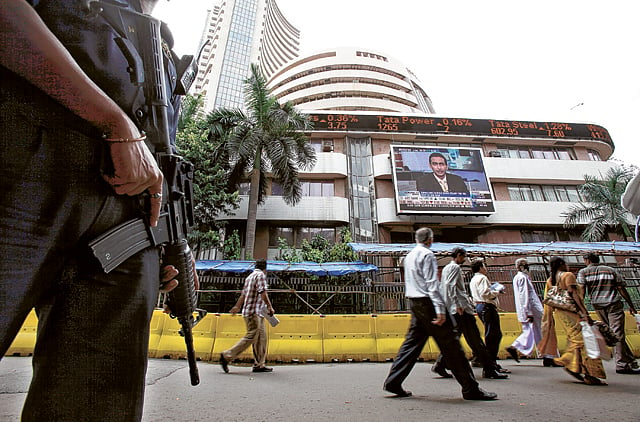India budget fails to deliver on stimulus
Too much of capital outlay on agriculture comes at the expense of cash starved industry

Dubai: First the market took a dive... now economists worry whether the Indian economy will be able to correct itself.
“Overall, we see the budget as largely neutral for short-term growth,” wrote Sonal Varma, chief economist for India and Asia ex-Japan at Nomura Holdings Inc. in Singapore.
The economy has seen six consecutive quarters of slowing growth, with private investments flat, exports declining, and consumers tightening their belts. Investors had hoped that the government would lay out new initiatives to jump start the struggling real estate or financial sector – which have been bogging down the country’s growth outlook.
But the budget had little to offer on these aspects. Economists were apathetic in their reaction to the allocated budget, given the current state of the economy, with government spending projected to rise by around 13 per cent.
The budget also proposed that the dividend distribution tax was levied on investors instead of companies, and announced abolishing certain tax exemptions.
The expenditure increases, coupled with income tax cuts, do not seem to suggest a large fiscal stimulus that the current slowdown perhaps warranted, said Abheek Barua, chief economist at HDFC Bank.
Tax cuts fail to cheer
The government cut income taxes for the middle-class, but hiked import tariffs in a mildly expansionary budget aimed at reversing India’s most serious economic slowdown in decades. However, the Bombay Stock Exchange’s benchmark Sensex index tumbled 2.4 per cent during a special day of Saturday trading and the National Index 50 fell 2.5 per cent. T
The declines came as investor hopes dimmed that the government would take advantage of the downturn to challenge structural weaknesses that have contributed to the economy’s deceleration.
It is a budget that was low on delivery, said M.R. Raghu, managing director of India-based Marmore Mena Intelligence, a unit of Kuwait Financial Centre (Markaz), adding that the market was expecting a “bold visionary budget, but what they got was a humble budget with no sense of urgency”.
Deficit blowout
India’s finance minister Nirmala Sitharaman on Saturday said that India’s fiscal deficit for the current financial year would come in at 3.8 per cent of GDP, above the 3.3 per cent target.
“What can the government do other than really blowing out the fiscal deficit – realistically there is not much they can do,” said Mark Matthews, head of Asia research at Julius Baer. “When there is a big mess, it’s not easy to clean up, but it has to be cleaned up,
The problem with the economy is that the banking system was really weighed down by far too much bad debt and the credit market is in need of further healing despite RBI’s efforts to bring down bad debt levels, Matthews added.
Some “good” moves
The continued rationalization of personal income tax slabs, the sops announced for the rural and agriculture sectors, and the aggressive push on infrastructure spending were considered steps in the right direction.
But the question is whether this will leave more money in the pockets of tax payers and result in increased consumption, Raghu said, adding that this budget focused heavily on agriculture and farmers at the cost of industry.
Sign up for the Daily Briefing
Get the latest news and updates straight to your inbox
Network Links
GN StoreDownload our app
© Al Nisr Publishing LLC 2026. All rights reserved.